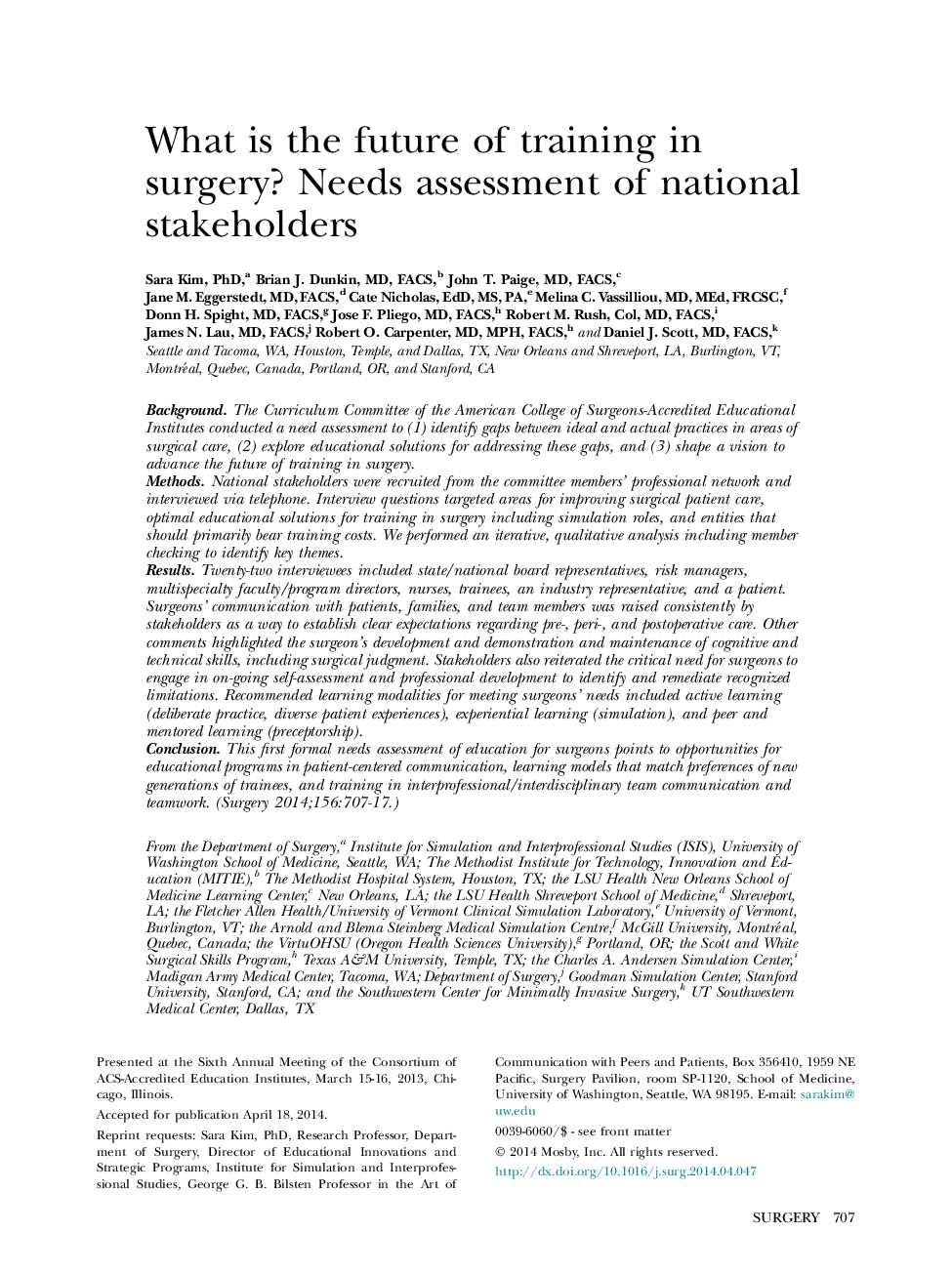| کد مقاله | کد نشریه | سال انتشار | مقاله انگلیسی | نسخه تمام متن |
|---|---|---|---|---|
| 4307143 | 1289238 | 2014 | 11 صفحه PDF | دانلود رایگان |
BackgroundThe Curriculum Committee of the American College of Surgeons-Accredited Educational Institutes conducted a need assessment to (1) identify gaps between ideal and actual practices in areas of surgical care, (2) explore educational solutions for addressing these gaps, and (3) shape a vision to advance the future of training in surgery.MethodsNational stakeholders were recruited from the committee members' professional network and interviewed via telephone. Interview questions targeted areas for improving surgical patient care, optimal educational solutions for training in surgery including simulation roles, and entities that should primarily bear training costs. We performed an iterative, qualitative analysis including member checking to identify key themes.ResultsTwenty-two interviewees included state/national board representatives, risk managers, multispecialty faculty/program directors, nurses, trainees, an industry representative, and a patient. Surgeons' communication with patients, families, and team members was raised consistently by stakeholders as a way to establish clear expectations regarding pre-, peri-, and postoperative care. Other comments highlighted the surgeon's development and demonstration and maintenance of cognitive and technical skills, including surgical judgment. Stakeholders also reiterated the critical need for surgeons to engage in on-going self-assessment and professional development to identify and remediate recognized limitations. Recommended learning modalities for meeting surgeons' needs included active learning (deliberate practice, diverse patient experiences), experiential learning (simulation), and peer and mentored learning (preceptorship).ConclusionThis first formal needs assessment of education for surgeons points to opportunities for educational programs in patient-centered communication, learning models that match preferences of new generations of trainees, and training in interprofessional/interdisciplinary team communication and teamwork.
Journal: Surgery - Volume 156, Issue 3, September 2014, Pages 707–717
